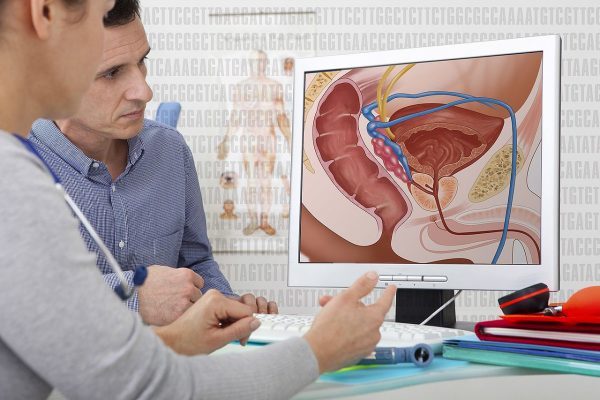Chinese AI able to diagnose and identify cancerous prostate samples as well as human doctors
05/30/2018 / By Edsel Cook

A Chinese research team has come up with an artificial intelligence (AI) to help them diagnose prostate biopsies and identify possible cancers. According to an article on SciMex.org, the AI is as good as a human pathologist.
The learning software is said to be able to grade the malignancy of the cancer with significant accuracy. It can also learn from its experiences.
In the short run, the AI will reportedly streamline the diagnostic procedure and eliminate the risk of variability that mars human diagnoses. It will also make up for the shortages of trained pathologists.
In the future, China could turn prostate cancer diagnosis over to machines. (Related: Training AI to understand how people think: Google’s DeepMind is one step closer to “thinking” like humans… what could possibly go wrong?)
There are more than a million diagnoses of prostate cancer every year. To confirm such diagnoses, clinicians take a physical sample and send it to a pathologist for a biopsy.
“This is not going to replace a human pathologist,” argued research leader Hongqian Guo, who was part of the team that showed off the AI at the European Association of Urology congress in Copenhagen.
“We still need an experienced pathologist to take responsibility for the final diagnosis. What it will do, is help pathologists make better, faster diagnosis, as well as eliminating the day-to-day variation in judgement which can creep into human evaluations,” he claimed.
AI can diagnose prostate samples with the accuracy of human experts
The research team obtained more than 900 prostate samples from nearly 300 patients. These pathology samples were subdivided into 40,000 smaller samples.
Three-fourths of this much larger group were employed as training material for the the software. The AI analyzed the whole-mount prostate pathology images to get an idea of what it is meant to look for.
The last 10,000 samples served as an accuracy test. A human pathologist served as the comparison point for the AI’s performance.
According to the researchers, their AI came up with an accurate diagnosis in 99.38 percent of cases. The accuracy rate is equal to that of the human expert.
Furthermore, the AI was also able to correctly identify different Gleason Grades in a number of pathology sections. Again, the performance of the AI matched that of the human pathologist’s diagnosis.
“The system was programmed to learn and gradually improve how it interpreted the samples. Our result shows that the diagnosis the AI reported was at a level comparable to that of a pathologist,” reported Guo.
“Furthermore, it could accurately classify the malignant levels of prostate cancer,” he added.
According to Guo, previous examples of artificial intelligence possessed limited clinical value. However, he also believes his team’s software is the first automated work that can provide accurate reporting and diagnosis of prostate cancer.
He says its advantages include faster throughput and a higher consistency in cancer diagnosis among pathologists, hospital, and even countries.
“Artificial intelligence is advancing at an amazing rate – you only need to look at facial recognition on smartphones or driverless cars. It is important that cancer detection and diagnosis takes advantage of these changes,” Guo urged.
Trained human pathologists must have final say in diagnosis
“This is interesting work which shows how artificial intelligence will increasingly step into clinical practice,” observed Rodolfo Montironi, a pathologist and professor at Università Politecnica delle Marche.
According to Montironi, the Chinese-developed AI can be useful in areas that lack the services of a trained pathologist.
“Like all automation, this will lead to a lesser reliance on human expertise, but we need to ensure that the final decisions on treatment stay with a trained pathologist,” he added.
Read more articles about how technology is being used in modern healthcare at HealthCoverage.news.
Sources include:
Tagged Under: AI, artificial intelligence, biopsy, cancer biopsy, computing, diagnosis, diagnostic procedure, future tech, health coverage, machine learning, medical devices, medical tech, men's health, pathology, Prostate cancer, robot doctor, robotics



















